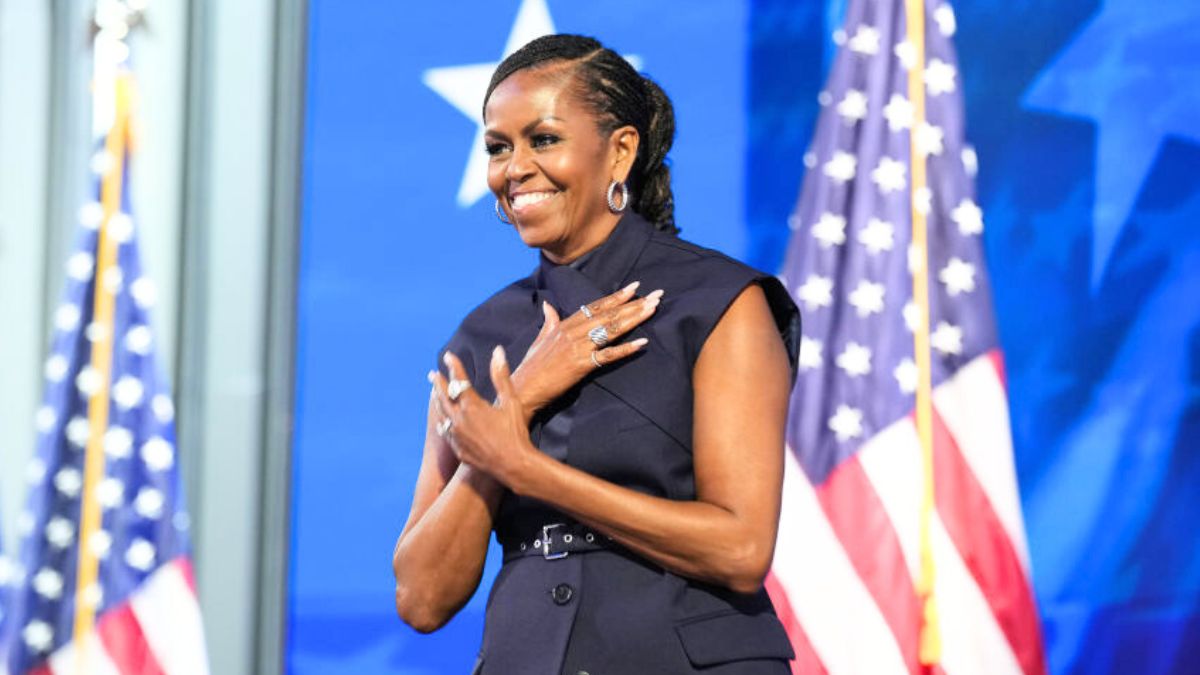At the DNC, former First Lady Michelle Obama reduced the “orange dumpster fire” that is Donald Trump to smoldering ashes, while simultaneously painting a compelling portrait of Vice President Kamala Harris as the beacon of hope America desperately needs.
“America, hope is making a comeback,” Obama declared, echoing the optimistic refrain of her husband’s historic 2008 campaign. It was a message calibrated to reframe the 2024 race. Harris doesn’t whine or obsess over ancient controversies like a broken record. But it was Obama’s brilliant appropriation and subversion of the incendiary term “affirmative action” that truly showcased her oratorical skills.
For far too long, Republicans have brandished the phrase like a poison-tipped dagger against policies aimed at creating a more equitable playing field for marginalized communities. Obama audaciously flipped the script, exposing how it’s the wealthy and well-connected who truly benefit from a pervasive form of “affirmative action for the rich”– legacy admissions, tax loopholes, and myriad other advantages that give the privileged a golden escalator to success.
Harris, in contrast, “understands that most of us will never be granted the luxury of failing upwards,” Obama said. It was a theme Obama returned to again and again throughout her speech – the idea that Harris, unlike her opponent, understands the struggles of everyday Americans because she’s lived them herself. After all, Donald Trump, a billionaire born into privilege and detached from reality, never set foot in a public school classroom, never had to scrimp and save to afford college tuition or take on the crushing burden of student debt, and has never walked a mile in the worn shoes of the struggling working class he claims to champion.
Obama’s words paint a poignant picture of the gaping double standards that permeate American society, where the consequences of failure are infinitely more devastating for those without a diamond-encrusted safety net. Throughout Trump’s reign, critics frequently portrayed him as a once-in-a-generation, democracy-devouring monster. But by relentlessly depicting him as an apocalyptic villain, they may have inadvertently elevated his stature, crowning him as the larger-than-life anti-hero of our dystopian political blockbuster.
Obama, however, subtly diverged from this well-trodden path. Rather than framing Trump as a singular, all-powerful nemesis, she deftly situated him within a broader tapestry of systemic inequality – one in which his particular brand of toxic, ego-driven bluster is but a symptom of a much deeper societal rot. By shifting the focus from the man to the machine, she offered a more nuanced critique of the forces that gave rise to Trumpism in the first place. And make no mistake – those forces are still very much at play.
Trump’s ominous “Agenda 47” and shadowy “Project 2025” loom on the horizon, threatening to unleash a torrent of dystopian policies that could shatter the very bedrock of our nation. As tempting as it may be to dismiss them as mere campaign bluster, the last four years have taught us that when it comes to Donald Trump, no threat is too outlandish to be taken seriously. Four more years under this orange menace is frankly unfathomable.
